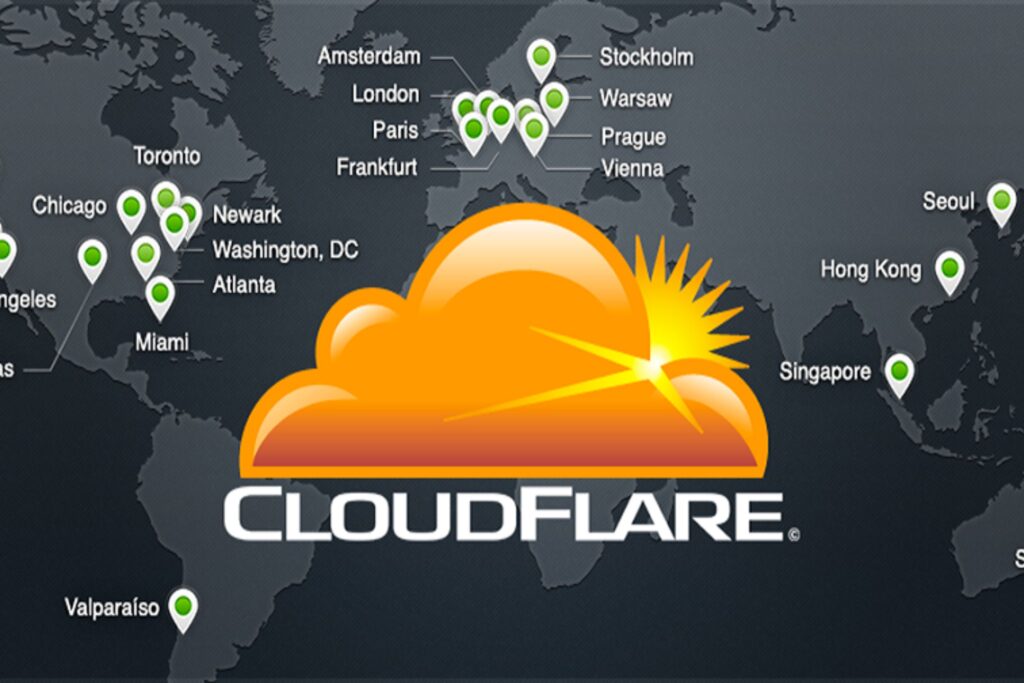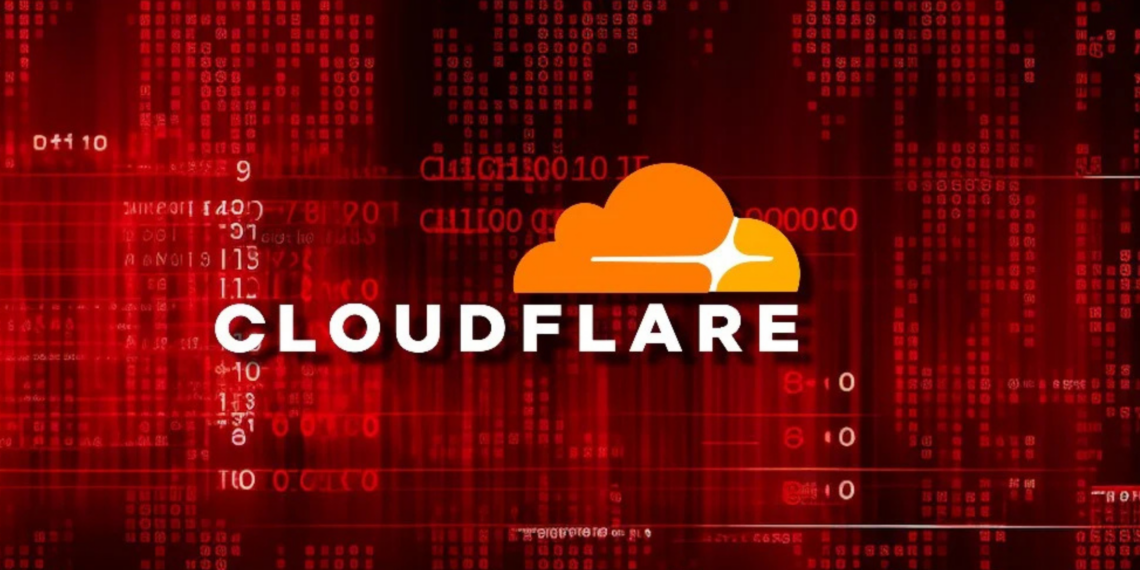In today’s digital-first world, ensuring your startup’s online presence is secure, fast, and reliable is paramount. As startups strive to build scalable and resilient web applications, choosing the right infrastructure and security solutions becomes critical. Cloudflare, a leading web infrastructure and security company, offers a suite of services designed to enhance website performance, protect against threats, and ensure high availability. But is Cloudflare the right choice for your startup? This article explores Cloudflare’s features, benefits, potential drawbacks, and how it compares to alternatives, helping you determine if it aligns with your startup’s unique needs.
What is Cloudflare?
Cloudflare is a global network designed to make everything you connect to the Internet secure, private, fast, and reliable. Founded in 2009, Cloudflare provides a range of services including content delivery network (CDN) capabilities, internet security, domain name system (DNS) services, and distributed denial-of-service (DDoS) protection. By acting as an intermediary between your startup’s server and your users, Cloudflare optimizes performance, enhances security, and ensures consistent uptime.
Key Features of Cloudflare for Startups
1. Content Delivery Network (CDN)
Cloudflare’s CDN caches your website’s static content across its global network of data centers, reducing latency and improving load times for users worldwide. This ensures that your startup’s website delivers content quickly, regardless of the user’s location.
2. DDoS Protection
Cloudflare provides robust protection against DDoS attacks, which can overwhelm your website with traffic and cause downtime. Their DDoS mitigation services automatically detect and block malicious traffic, ensuring your site remains accessible during an attack.
3. Web Application Firewall (WAF)
Cloudflare’s WAF protects your web applications by filtering and monitoring HTTP traffic between your website and the Internet. It helps prevent common threats like SQL injection, cross-site scripting (XSS), and other vulnerabilities, enhancing your site’s security posture.
4. DNS Services
Cloudflare offers fast and reliable DNS resolution services. With their global Anycast network, DNS queries are answered from the nearest data center, reducing lookup times and improving overall website performance.
5. SSL/TLS Encryption
Cloudflare provides SSL/TLS encryption to secure data transfer between your users and your server. This encryption not only protects sensitive information but also boosts your website’s SEO ranking and user trust.
6. Edge Computing with Cloudflare Workers
Cloudflare Workers allow startups to run JavaScript code at the edge of their network, enabling serverless functions that can handle tasks like API integrations, form submissions, and more without the need for a traditional backend server.
7. Load Balancing
Cloudflare’s load balancing services distribute traffic across multiple servers or data centers, ensuring high availability and reliability. This feature helps prevent server overloads and reduces the risk of downtime.
8. Analytics and Monitoring
Cloudflare provides detailed analytics and monitoring tools that offer insights into your website’s performance, security threats, and user behavior. These metrics help startups make informed decisions to optimize their online presence.
9. Automatic Platform Optimization (APO)
Cloudflare’s APO enhances the performance of WordPress sites by caching dynamic content and optimizing delivery. This results in faster load times and improved user experiences without requiring extensive configuration.
10. Rate Limiting
Rate limiting allows startups to control the number of requests a user can make to their server within a specific timeframe. This feature helps prevent abuse, such as brute force attacks or excessive API calls, protecting your resources and maintaining performance.

Pros of Using Cloudflare for Startups
1. Enhanced Security
Cloudflare offers comprehensive security features, including DDoS protection, WAF, SSL/TLS encryption, and rate limiting. These tools safeguard your startup’s website from a wide range of cyber threats, ensuring data integrity and user trust.
2. Improved Performance
By leveraging Cloudflare’s CDN, DNS services, and edge computing capabilities, startups can significantly enhance their website’s speed and responsiveness. Faster load times lead to better user experiences and higher conversion rates.
3. Cost-Effective Solutions
Cloudflare offers a range of pricing plans, including a free tier with essential features suitable for early-stage startups. As your startup grows, you can upgrade to more advanced plans that provide additional security and performance enhancements without breaking the bank.
4. Scalability
Cloudflare’s infrastructure is designed to scale with your startup. Whether you’re experiencing rapid traffic growth or expanding into new markets, Cloudflare can accommodate increased demands seamlessly, ensuring consistent performance and reliability.
5. Global Reach
With data centers in over 200 cities worldwide, Cloudflare ensures that your startup’s website delivers content quickly to users regardless of their geographic location. This global presence enhances your site’s accessibility and performance on a global scale.
6. Ease of Use
Cloudflare’s user-friendly dashboard and straightforward setup process make it easy for startups to implement and manage their services. Minimal technical expertise is required to get started, allowing founders to focus on their core business operations.
7. Reliability and Uptime
Cloudflare’s robust infrastructure and load balancing capabilities ensure high availability and minimize the risk of downtime. Startups can rely on Cloudflare to keep their websites accessible even during traffic spikes or server outages.
8. Comprehensive Support
Cloudflare offers extensive documentation, tutorials, and a supportive community to help startups troubleshoot issues and optimize their use of the platform. Additionally, higher-tier plans include dedicated support for more personalized assistance.

Cons of Using Cloudflare for Startups
1. Complexity for Advanced Features
While Cloudflare is user-friendly for basic configurations, leveraging its advanced features like Workers, load balancing, and WAF rules can be complex. Startups without technical expertise may require additional resources or support to fully utilize these capabilities.
2. Potential Performance Overheads
In some cases, routing traffic through Cloudflare’s network can introduce slight latency, especially if not configured optimally. Startups need to ensure proper setup to minimize any potential performance overheads.
3. Limited Customization in Free Tier
Cloudflare’s free tier offers essential features, but startups may find the customization options limited compared to paid plans. Advanced security and performance features are only available in higher-tier subscriptions.
4. Dependency on Third-Party Service
Relying on Cloudflare means entrusting a critical component of your infrastructure to a third-party provider. Any downtime or issues on Cloudflare’s end could impact your website’s accessibility and performance.
5. Privacy Concerns
While Cloudflare enhances security, some startups may have concerns about routing their traffic through a third-party provider, especially those handling sensitive or regulated data. Ensuring compliance with data privacy laws is essential.
6. Rate Limiting Challenges
Implementing rate limiting requires careful configuration to avoid inadvertently blocking legitimate users or services. Startups need to balance security with accessibility to ensure a smooth user experience.
Comparing Cloudflare with Alternatives
Cloudflare vs. Amazon CloudFront
- Features: Both offer robust CDN services, but Cloudflare provides additional security features like integrated WAF and DDoS protection out-of-the-box. Amazon CloudFront integrates seamlessly with other AWS services, making it a better choice for startups already using AWS.
- Ease of Use: Cloudflare is generally easier to set up and manage, while CloudFront may require more technical expertise and configuration.
- Pricing: Cloudflare offers a more straightforward pricing model with a free tier, whereas CloudFront’s pricing is based on usage and can be more complex to estimate.
Cloudflare vs. Fastly
- Performance: Fastly is known for its high performance and low latency, particularly for dynamic content. Cloudflare offers competitive performance with a broader range of integrated security features.
- Customization: Fastly provides more granular control over caching and edge computing, making it suitable for startups needing advanced configurations. Cloudflare offers sufficient customization for most startups without the complexity.
- Pricing: Both platforms offer pay-as-you-go pricing, but Fastly tends to be more expensive for high-traffic startups, whereas Cloudflare provides more cost-effective solutions with additional free features.
Cloudflare vs. Akamai
- Market Presence: Akamai is a well-established CDN provider with extensive global reach and enterprise-grade features. Cloudflare, while also globally extensive, is often favored by startups for its ease of use and comprehensive free tier.
- Features: Akamai offers advanced features tailored for large enterprises, whereas Cloudflare provides a balanced mix of performance, security, and ease of use suitable for startups.
- Pricing: Akamai’s pricing is generally higher and more suited to large businesses, while Cloudflare offers more flexible and affordable pricing tiers for startups.
Cloudflare vs. StackPath
- Features: Both offer CDN and security features, but StackPath emphasizes edge computing and network performance. Cloudflare provides a broader suite of integrated services, including DNS, WAF, and DDoS protection.
- Ease of Use: Cloudflare is more user-friendly with a more intuitive interface, making it easier for startups to manage their services.
- Pricing: StackPath’s pricing is competitive for CDN services, but Cloudflare offers more value with additional security and performance features included in their plans.
Considerations for Startups
1. Budget Constraints
Evaluate whether Cloudflare’s pricing aligns with your startup’s budget. Start with the free tier to assess the platform’s capabilities and consider upgrading to paid plans as your needs grow. Compare the costs against the value provided in terms of performance and security enhancements.
2. Technical Expertise
Assess your team’s ability to implement and manage Cloudflare’s advanced features. Startups with limited
technical resources may need to rely on Cloudflare’s support or invest time in learning the platform to maximize its benefits.
3. Scalability Needs
Consider your startup’s growth trajectory and ensure that Cloudflare can scale with your increasing traffic and security demands. Cloudflare’s infrastructure is designed to handle significant growth, but it’s essential to plan for future scalability from the outset.
4. Integration Requirements
Determine whether Cloudflare integrates seamlessly with your existing tools and platforms. Effective integrations can enhance workflows and reduce the need for manual data handling, improving overall efficiency.
5. Security and Compliance
Evaluate your startup’s security and compliance requirements. Cloudflare offers robust security features, but startups in regulated industries may need to ensure that Cloudflare meets specific compliance standards like GDPR, HIPAA, or PCI DSS.
6. Performance Optimization
Ensure that Cloudflare’s CDN and performance optimization features align with your startup’s goals for website speed and reliability. Proper configuration is crucial to achieving optimal performance gains.
7. User Experience
Consider the impact of Cloudflare’s services on your end-users. Enhanced security and faster load times can significantly improve user experience, leading to higher satisfaction and retention rates.
8. Support and Resources
Assess the level of support and resources you might need. Cloudflare offers extensive documentation, community forums, and paid support options. Startups should determine the level of assistance required based on their technical expertise and the complexity of their setup.
Bottom Line: Is Cloudflare the Right Choice for Your Startup?
Cloudflare offers a comprehensive suite of tools that can significantly enhance your startup’s website performance, security, and reliability. Its robust features, scalability, and global reach make it a strong contender for startups aiming to establish a resilient online presence. However, it’s essential to weigh the benefits against potential drawbacks such as cost scalability, complexity for advanced features, and dependence on a third-party service.
Cloudflare is ideal for startups that:
- Prioritize Website Performance and Speed: If your startup relies heavily on website performance for user experience and conversions, Cloudflare’s CDN and optimization tools can provide significant improvements.
- Need Robust Security Measures: Startups that handle sensitive data or are targets for cyber threats can benefit from Cloudflare’s comprehensive security features, including WAF, DDoS protection, and SSL/TLS encryption.
- Plan for Rapid Growth: Cloudflare’s scalable infrastructure ensures that your startup can handle increasing traffic and complex security demands as it grows.
- Operate Globally: Startups with a global user base can leverage Cloudflare’s extensive network to deliver content quickly and reliably to users around the world.
- Seek an All-in-One Solution: Cloudflare’s integrated suite of services reduces the need to manage multiple disparate tools, streamlining your startup’s infrastructure management.
Cloudflare may not be the best fit for startups that:
- Have Very Limited Budgets: While Cloudflare offers a free tier, startups with very tight budgets might find the costs of higher-tier plans prohibitive as they scale.
- Require Highly Specialized Customizations: Startups with unique or highly specific needs that go beyond Cloudflare’s offerings may encounter limitations, necessitating additional tools or custom solutions.
- Lack Technical Expertise: Implementing and optimizing Cloudflare’s advanced features can be complex. Startups without the necessary technical skills may struggle to fully leverage the platform’s capabilities.
- Depend on Offline Functionality: Startups that require robust offline functionality may find Cloudflare’s cloud-based services limiting, as most features rely on active internet connectivity.
Final Verdict
Cloudflare is a powerful and versatile platform that can greatly benefit startups by enhancing website performance, ensuring robust security, and providing scalable infrastructure solutions. Its comprehensive feature set and global network make it an excellent choice for startups aiming to build a strong and secure online presence. However, startups should carefully evaluate their specific needs, budget constraints, and technical capabilities to determine if Cloudflare aligns with their business objectives and growth plans.
Recommendation: Start with Cloudflare’s free tier to explore its capabilities and assess how well it integrates with your startup’s existing tools and workflows. Utilize Cloudflare’s extensive resources, including their Learning Center and community forums, to maximize your understanding and usage of the platform. Gather feedback from your team and monitor key performance metrics to determine if Cloudflare enhances your website’s performance and security effectively. If Cloudflare meets your startup’s needs, consider upgrading to a paid plan to unlock additional features and support your growing requirements. By conducting a thorough evaluation, you can ensure that Cloudflare supports your startup’s journey toward a secure, fast, and reliable online presence.









